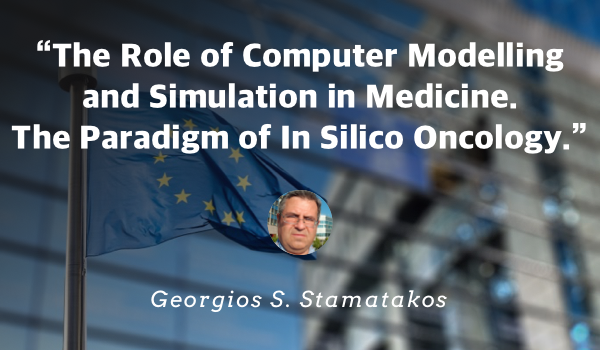
ATHENS -
In Silico Oncology
The combination of computer science and medicine, particularly through the use of computer modelling and simulation, represents a shift in healthcare, especially in terms of oncology. In silico oncology, a term derived from the Latin phrase 'in silico,' meaning performed on a computer or via computer simulation, is a powerful tool in the fight against cancer. This approach leverages computational models to simulate the biological processes of cancer development, progression, and response to treatment. By creating virtual representations of tumors and their interaction with various therapies, researchers can predict how cancer will evolve and respond to treatments in a risk-free, cost-effective manner. This paradigm shift not only accelerates the pace of cancer research but also opens new avenues for personalized medicine, where treatments can be tailored to the specific genetic and molecular profile of an individual's cancer.
One of the most significant benefits of in silico oncology is its ability to drastically reduce the need for traditional clinical trials, which are often time-consuming, expensive, and ethically challenging due to the involvement of human subjects. Through computer simulations, scientists can explore a range of potential therapies and combinations thereof, quickly identifying those most promising for further study. This not only speeds up the discovery of effective cancer treatments but also minimizes the risks and costs associated with early-stage research. Furthermore, these models can help in understanding the mechanisms of drug resistance, a major hurdle in cancer treatment, thereby guiding the development of strategies to overcome or circumvent resistance mechanisms.
Despite the promising potential of in silico oncology, challenges remain in its widespread adoption. Ensuring the accuracy and reliability of these models requires vast amounts of high-quality data and advanced computational techniques. Additionally, integrating these tools into clinical practice demands a multidisciplinary approach, combining expertise in computer science, biology, and medicine. However, as technology advances and more data become available, the role of computer modelling and simulation in medicine is set to expand, making in silico oncology an integral part of cancer research and treatment. This paradigm not only represents a significant advancement in oncological care but also exemplifies the broader potential of digital technologies to transform healthcare, offering hope for more effective, personalized treatments for a lot of diseases.
What’s in it for me? / Why should I care?
In silico oncology directly impacts the effectiveness, speed, and cost of cancer treatment and healthcare. This technology promises more personalized and effective treatments tailored to individuals specific genetic makeup, potentially reducing the trial-and-error approach often associated with finding the right cancer treatment. It accelerates the development of new drugs, making innovative treatments available sooner and possibly at lower costs. For us, this means access to safer, more efficient medical care, improved chances of successful treatment outcomes, and the possibility of facing fewer side effects, making a significant difference in healthcare around the world.
Further Reading:- In silico medicine’s landmark developments
- In-silico medicine: a new paradigm in modern healthcare emerges in Greece
- AI supercharges biomarker-driven clinical trials, raises accuracy, success





 450 views
450 views







